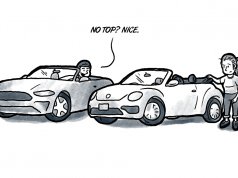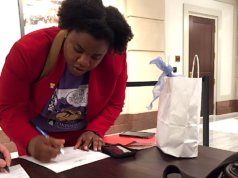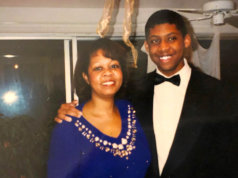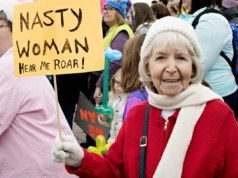DUBAI, United Arab Emirates — I am done with feminism.
Done. Done. Done.
And now that I’m technically working for “free” until 2016 thanks to the gender pay gap, it might be a good time to lay it all down.
It’s not that I’m angry, because I’m not. I’d rather avoid the vitriolic labels of the jaded woman. It’s not that I don’t fully support the advancement, strength, intelligence, independence and equality of my fellow women (and men), but I’d much rather live in a world that didn’t have to prompt empowerment through institutionalized language, polarization and misappropriation. I know it’s a necessary evil in the fight for equality, but I can’t help but feel disenfranchised from the struggle.
Broader culture shifts
I’m not alone: A Huffington Post/YouGov poll recently found that whilst 82 percent of Americans stated that they believe in the equality of the sexes, only 20 percent of them identify as feminists.
As the broader culture is shifting, “feminism” is becoming much more politically and socially salient. From Beyoncé taking to the stage amidst a neon backdrop spelling out “FEMINIST” to Lena Dunham explaining feminism to the masses, the conversation now has an element of celebrity commodification.
And with it, a sort of galvanization: For every feminist proclaimer, there is a feminist hater. We continue to perpetuate the idea that it is “us” (women) against “them” (men).
Yet for centuries, amazing women (but first and foremost incredible people) have simply done what they needed to do to be heard, without having the weight of a cultural and political mantle on their shoulders.
A broader perspective
I wanted a broader perspective on this, so I naturally went to my grandmother. Was feminism a thing in her generation, a time bereft of icons like Taylor Swift or even Gloria Steinem? It certainly wasn’t like it is now.
By all accounts, my grandmother was a force for change when the dialogue hadn’t yet entered popular culture. In school, she played on one of the United States’ first female basketball teams, when women were still required to wear skirts on the court and were restricted to half the play: “They didn’t think girls could compete full court!”
She went on to a university degree when women could really only pick from a handful of careers, most commonly: teacher, nurse or secretary.
What followed was marriage with my grandfather, where they started businesses, maintained those partnerships and raised six children (putting each and every one through university and then onto graduate degrees) — a feat in itself akin to running a small corporation. While she wasn’t out waving the feminism flag, she, and many women like her, were leaning in before Sheryl Sandberg was even in utero.
When asked if she thinks that expectations have changed for women throughout the years, she answered with a resounding yes, but in spite of it she never grew up feeling like she couldn’t grasp onto a more ambitious future simply because she was a certain gender, or even that it dominated much of the conversation. She simply did what she had to do, and for that I’m more grateful to her paving the way than I am to any number of Beyoncés.
Womanhood in the Arab world
As a female who lives in the Middle East, I’m often met with assumptions made by those I interact with in the Western world (more often than not, said people have never even set foot in an Arab country). At a party on a visit back to the United States, after learning that I live in Dubai, a fellow guest leaned over across the table and whispered, “But how does it feel to be a … you know … female there?” Well sir, how does it feel to be a … you know … human being?
Across the Middle East, I’ve encountered women who run their own businesses, raise families (or choose not to) and participate in the political and social process as instruments of change rather than elements of conflict. These women do their thing despite the framing or degradation society attempts to put on them.
For every misaligned vision of womanhood in the Arab world, there are women doing extraordinary things without fixation on their gender. Take Saudi princess Reema Bint Bandar Al Saud, the entrepreneur, single mother, South By Southwest keynote speaker, philanthropist, and Everest-climbing all-around badass.
Princess Reema is adamant that engagement with women in the professional sphere of Saudi Arabia should be much more about evolution and people as a whole instead of the polarizing Westernization and feminism argument. Equality isn’t a regional argument.
The same stereotype bashing is done by Nawal El Saadawi, the radical Egyptian writer and female genital mutilation activist whose “controversial” prose garnered her imprisonment during President Anwar Al Sadat’s term.
Or Mariam al-Mansouri, the first female fighter pilot from my adopted country of the United Arab Emirates. Her leadership in the charge of airstrikes against ISIS in Syria garnered her both the praise of the international community and sexist comments from Fox News commentators.
I understand that these women’s lives might have certain in-roads to success based solely on their luck of birth or blessing of education that might not be afforded a child bride in Afghanistan, or a disadvantaged teen from the South Side of Chicago. But they are transforming the collective view and challenging us to see things differently, so that the ripple effect might reach those that need our support the most.
Done
So yes, I am done with feminism. I am done with needing a day to remind the world that we just aren’t there yet. I am done with gender pay gaps and angry backlashes. I’m done with having to defend my ambitions and the ambitions of my fellow females. I am done with labels.
We will always do what we need to do, but I prefer we do it as human beings.






















